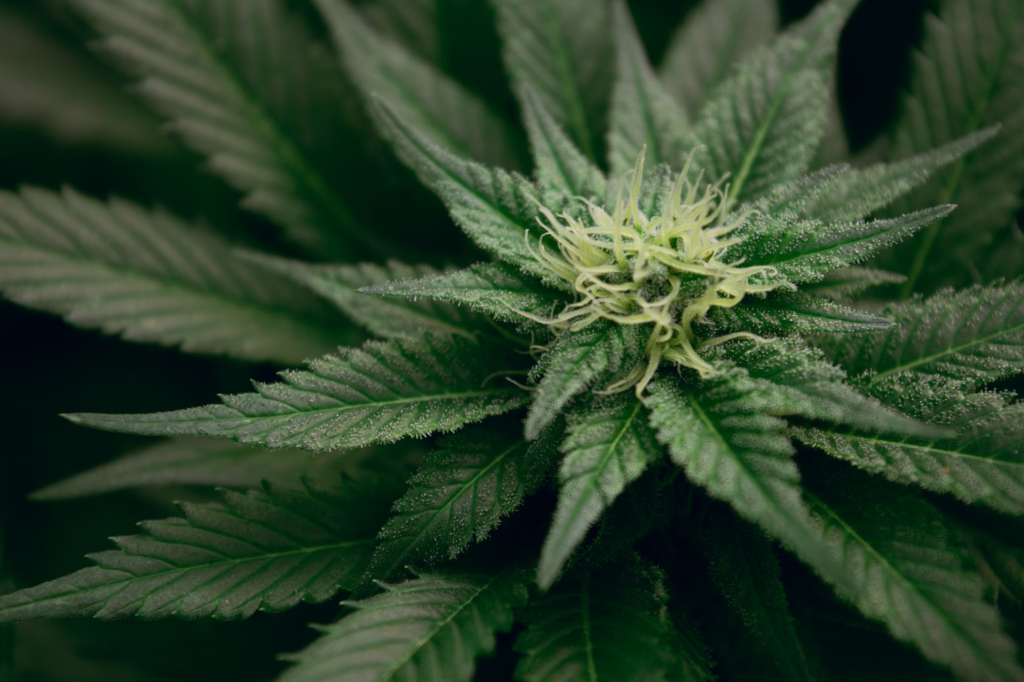The Potential of Cannabis in Managing Depression
Depression, a prevalent mental health condition affecting millions of individuals, has sparked significant research into the role of THC and CBD, two prominent molecules found in cannabis, in relation to anxiety and depression.
With approximately 19.2 million adults in the United States and 4.6% of the European population experiencing depression or anxiety, this condition can have a profound impact on people’s lives. For some, depression may be episodic, while for others, it becomes a constant companion that significantly diminishes their quality of life. The economic burden of depression is substantial, and conventional treatments often involve medications that may have side effects.
Interestingly, some individuals with depression have turned to cannabis as a potential remedy. This has captured the attention of researchers, who are keen to explore the herb’s therapeutic potential for various conditions. The question remains: could cannabis provide relief for depression?
Understanding Depression: Causes and its Nature
Occasionally, we experience moments of sadness in our lives. Factors like stress, anxiety, and emotional experiences can contribute to feeling low and dispirited. However, depression surpasses mere sadness. It manifests as a persistent mental health disorder that can endure for extended periods, ranging from months to even years. Those afflicted with depression cannot simply shake it off at will; it requires proper support and treatment for recovery.
Identifying Possible Triggers of Depression
The causes of depression are multifaceted and intricate. It can be triggered by various factors, such as experiencing a significant loss like the death of a loved one, enduring a serious illness, or facing challenges in social or work environments. For some individuals, it may result from a culmination of minor events that gradually lead to a downward spiral. Additionally, the risk of depression is heightened when individuals resort to self-medication through the use of certain drugs and alcohol.
In certain instances, depression can emerge without any apparent cause. Biological factors and individual personality traits may contribute to its development. One explanation for depression involves an insufficiency of neurotransmitters, particularly serotonin. Additionally, research has indicated that the hippocampus, a brain region involved in memory and learning, appears to be smaller in some individuals with depression. This could potentially be attributed to stress inhibiting the generation of new neurons.
Recognizing Common Symptoms of Depression
Depression can present itself in a multitude of ways, ranging from mild to severe. Recognizing the common symptoms of depression includes:
• Continuous low mood or sadness
• Lack of motivation and apathy
• Low self-esteem
• Insomnia
• Restlessness
• Difficulty concentrating
• Overeating or appetite loss
• Persistent aches and pains
• Feelings of hopelessness
• Feeling tearful and crying often
• Feeling irritable and intolerant
• No enjoyment of life
• Suicidal thoughts
Approaches to Treating Depression
Depression can be addressed through various treatment options, each tailored to the severity and unique aspects of the condition.
For non-drug approaches, healthcare professionals may recommend psychotherapy and exercise to enhance mood. Interestingly, engaging in aerobic exercise has been found to potentially increase endogenous cannabinoids, along with other substances, associated with the phenomenon known as the “runner’s high”. Additionally, cognitive-behavioral therapy (CBT) can be highly beneficial for individuals with depression, helping them modify patterns of thinking and behavior.
In certain cases, doctors may prescribe antidepressants as part of the treatment plan. Among the wide range of available antidepressants, selective serotonin reuptake inhibitors (SSRIs) are commonly prescribed.
SSRIs work by increasing the levels of serotonin, a neurotransmitter, in the brain. They inhibit the reabsorption of serotonin into the presynaptic neuron, thereby increasing the availability of this substance. While these medications effectively stabilize mood for many patients, they can sometimes be associated with side effects such as nausea, nervousness, dizziness, sexual problems, weight gain, and insomnia.
While these treatment options have proven beneficial for some individuals in managing and overcoming depression, they may not provide relief for everyone. As a result, some individuals are exploring alternative options, including the use of cannabis.
The Relationship Between Cannabis, Depression, and the Endocannabinoid System
If you have experience with cannabis consumption, you are likely acquainted with the range of effects it can produce. Smoking weed can sometimes elicit uncontrollable laughter, while certain strains can induce a long-lasting, euphoric state. Alternatively, some varieties offer a more calming experience, perfect for evening relaxation. However, there may also be occasions when using cannabis triggers feelings of anxiety or even panic.
Due to the individual variability in response, cannabis does not guarantee an improvement in mood for everyone.
Ongoing research is dedicated to investigating the impact of cannabis on depression. Before delving into the studies, it is important to establish certain distinctions. The varying concentrations of cannabinoids and terpenes in different cannabis strains can result in significantly diverse effects on mood.
Complicating matters further, strains exhibit considerable fluctuations in the levels of these chemical compounds. Some varieties are high in the psychoactive cannabinoid THC, while others are rich in the non-psychoactive cannabinoid CBD. Additionally, there are over 100 cannabinoids and 100 terpenes, each with their own unique effects. Consequently, the question of “Does cannabis impact depression?” cannot be adequately answered in a broad sense. Rather, it entails understanding the impact of individual molecules and their synergistic interactions.

Insights from Research Findings
Regrettably, there is currently a dearth of comprehensive research in this field, leaving us with limited knowledge of these intricate mechanisms. Nevertheless, scientific advancements have provided us with a better understanding of how THC and CBD, when considered individually, might impact mood.
To grasp the effects of these compounds on the brain, it is valuable to comprehend the functioning of the endocannabinoid system (ECS). The term “endocannabinoid” combines “endo” (meaning within) and “cannabinoid,” referring to cannabis. This cellular system involves biochemical processes that influence receptors in a manner similar to cannabis. ECS receptors are present in various cell types throughout the body. Presently, science has confirmed the existence of two primary receptors: CB1 and CB2.
The ECS comprises specialized neurotransmitters that bind to these receptor sites, modulating the system. These neurotransmitters, known as endocannabinoids, include anandamide and 2-arachidonoylglycerol (2-AG). Interestingly, molecules from the cannabis plant can interact with the same receptors due to their similar structure. These cannabinoids derived from cannabis, as well as other plant species, are referred to as phytocannabinoids.
Both anandamide and 2-AG play a crucial role in the dopaminergic system, which potentially influences mood regulation. These molecules bind to CB1 receptors in the nervous system and can also impact dopamine levels or receptor activity.
THC (tetrahydrocannabinol) stands as a prominent component within contemporary cannabis varieties. This molecule induces psychoactive effects by binding to CB1 receptors in the central nervous system. In the short term, it may influence mood by enhancing dopaminergic cell firing.
A study published in the Journal of Affective Disorders delved into the impact of cannabis on depression, anxiety, and stress. Researchers collected data from the Strainprint app to assess the effects of specific strains.
THC isn’t the only cannabinoid they studied; CBD was administered as well. The study found that strains high in CBD and low in THC were associated with the largest changes in mood ratings. In contrast, strains high in THC and low in CBD seemed to promote relaxation.
This could potentially be due to CBD’s interaction with serotonin,[8] a neurotransmitter that regulates mood. CBD is believed to bind to the 5-HT1A serotonin receptor.[9]
CBD’s interaction with CB1 receptors differs from that of THC, as it does not generate the same potent response and does not impact dopaminergic neurons in a similar manner. CBD is believed to function as an antagonist or inverse agonist of CB1 receptors while potentially acting as an indirect agonist of the same receptor. This dual role suggests that CBD might enhance anandamide levels by inhibiting the enzyme responsible for its breakdown, thereby allowing increased levels of anandamide to bind to CB1 receptors. These interactions could potentially contribute to CBD’s effects on mood.
The existing research on certain cannabis molecules and their potential impact on depression is promising. However, further comprehensive studies are required to fully explore the application of the plant in addressing this condition.
The Complex Relationship Between Cannabis and Depression
While short-term THC exposure can increase dopamine release, prolonged exposure may potentially dampen the functioning of the dopaminergic system. Persistent cannabis use could decrease the brain’s responsiveness to dopamine, potentially resulting in reduced feelings of reward and motivation.
It is important to note that cannabis encompasses more than just THC. CBD is currently being investigated for its potential effects on mood. Additionally, there is still much to be explored regarding over 100 other cannabinoids, terpenes, and various molecules within this realm.
Given the uncertain relationship between cannabis and depression, it is advisable to seek guidance from a healthcare professional to discuss the matter further.
- Depression and Other Common Mental Disorders https://apps.who.int
- Late-Life Depression, Hippocampal Volumes, and Hypothalamic-Pituitary-Adrenal Axis Regulation https://pubmed.ncbi.nlm.nih.gov
- Wired to run: exercise-induced endocannabinoid signaling in humans and cursorial mammals with implications for the ‘runner’s high’ | Journal of Experimental Biology https://jeb.biologists.org
- The mesolimbic dopamine reward circuit in depression https://pubmed.ncbi.nlm.nih.gov
- Reversal of dopamine D(2) receptor responses by an anandamide transport inhibitor https://pubmed.ncbi.nlm.nih.gov
- The effects of Δ 9 -tetrahydrocannabinol on the dopamine system | Nature https://www.nature.com
- A naturalistic examination of the perceived effects of cannabis on negative affect – ScienceDirect https://www.sciencedirect.com
- Antidepressant-like effect induced by Cannabidiol is dependent on brain serotonin levels. – PubMed – NCBI https://www.ncbi.nlm.nih.gov
- Agonistic Properties of Cannabidiol at 5-HT1a Receptors | SpringerLink https://link.springer.com
- Cannabinoids and Cannabinoid Receptors: The Story so Far https://www.cell.com
- The effects of Δ 9 -tetrahydrocannabinol on the dopamine system | Nature https://www.nature.com







